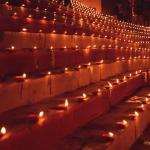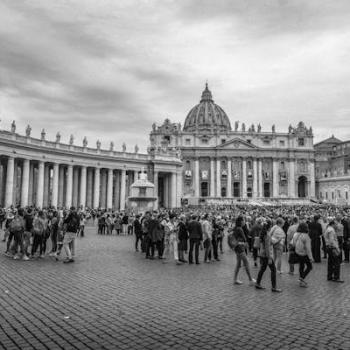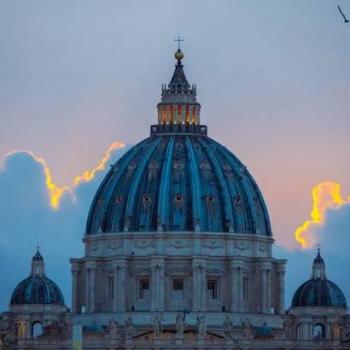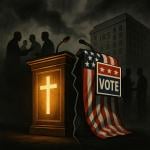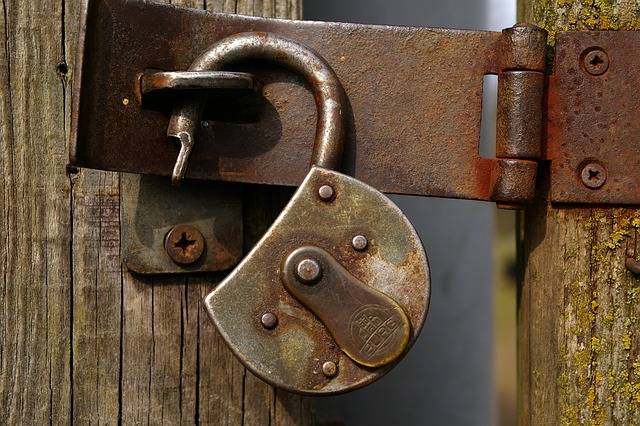
THE RELIGION GUY’S ANSWERS:
In almost every case, No, and No.
This issue erupted in the news with the surprise decision by Pope Francis to clamp unusual strict secrecy upon the Synod of Bishops he has summoned to the Vatican this month. (The Synod’s second and concluding session will occur a year from now). This indicates that church leaders the extent to which bishops are facing internal difficulties.
The media typically portray Francis as a relatively liberal pontiff. But it may not be coincidental that the pope’s native Argentina has a dicey record on journalistic and political freedoms. And Father Thomas Reese, who has observed Vatican Synods for decades, says “Pope Francis does not like the press, especially the western media, which, he believes, only writes about issues of concern to the Global North.”
True, western media – and their audiences – are especially interested in the ongoing sexual molesting scandals, women’s role in the church, LGBTQ+ concerns, Communion for divorced and remarried Catholics or shared with Protestants, and proposals to end the celibacy mandate for priests. All those controversies, and more, were part of the discussions leading up to this Synod.
A tradition since 1965
Regular meetings of Synods are a new idea authorized in 1965 by the Second Vatican Council because the world’s bishops “share in the responsibility for the universal Church” along with the pope. For decades, these meetings have occurred behind closed doors but with informative press briefings and helpful explanations on the ongoing discussions from participants. Francis himself preserved this tradition at his four prior Synods.
Not now. On the eve of the meeting, Vatican regulations, reinforced in the Pope’s opening address, directed delegates to say nothing about the discussions, including even what they themselves said. Moreover, the ban is in force perpetually after the Synod concludes (though a spokesman for the Holy See said violators are not under a formal threat of excommunication).
One result of closed doors is that outside interest groups affect news coverage of an event when the actual participants cannot. The New York Times reported on this aspect of the current Synod under the headline “The Holy Mess Outside a Secret Vatican Meeting.”
The same with later history. For instance, interpretation of what happened behind the closed doors of the Second Vatican Council in 1962-65 is shaped by a book compiled from New Yorker magazine articles by the liberal-leaning, pseudonymous “Xavier Rynne,” which caused a sensation at the time. (Long afterward, “Rynne” confirmed his rumored identity: U.S. Redemptorist theologian Francis X. Murphy.)
Vatican staff policy is defined by its Secretariat of State in the 1974 Instruction Secreta Continere, endorsed by Pope Paul VI. As is common with secular governments, church employees begin their service in the Vatican Curia or diplomatic corps by vowing “in no way, under any pretext” to break the “pontifical secret” covering their knowledge of inside dealings. Long-running uproar led Francis in 2019 to abolish that discipline in cases of clergy sexual abuse.
Picking a Pope
The best-known example of Vatican information blackouts is, of course, the Conclave where the College of Cardinals elects a new pope. The cardinals are sealed off from the outside world for however many ballots it takes. They take a solemn vow of “secrecy regarding everything that in any way relates to the election of the Roman Pontiff and regarding what occurs in the place of the election, directly or indirectly related to the results of the voting. We promise and swear not to break this secret in any way, either during or after the election of the new Pontiff . . .” This is a hangover from medieval times when European politicians tried to meddle in the proceedings.
The “does it work” question above brings us to the remarkable 1978 Conclave that elected Poland’s Pope John Paul II, which as the saying goes was a hinge of history. How did this happen? The very day after the election, a certain Roman priest visited our Time magazine bureau offering what purported to be – and our experts decided almost certainly was – the secret vote numbers for each cardinal on three ballots. When negotiations failed, The Guy assumes that rival Newsweek bought the information instead.
Another “does it work” leak involved Time’s exclusive 1968 scoop on the exact language of Pope Paul’s long-anticipated encyclical on birth control, which nobody remembers because the Vatican released the document the same day Time’s exclusive report hit the newsstands.
Also, a tip of the hat to the late religion-beat patriarch George Cornell. For a half-century, U.S. bishops’ meetings have largely been open to the media. But whenever they went into executive session to mull delicate matters, George usually had the secret substance on the Associated Press wire within an hour or two.
Regarding the “is it helpful” question, The Guy’s judgment (admittedly from a Protestant so contrary comments are welcomed) is that despite the difficulties, open discussions on policy foster parishioners’ engagement with their church, which is precisely what Francis hoped to increase through the current Synod. Open processes in naming church leaders improve the outcomes. And open finances help encourage donations.
Finally, The Guy must address the aforementioned sexual abuse crisis, which would need a lengthy article to treat adequately. Let’s simply observe that we have learned the hard lesson that covering up of criminal behavior and the secretive shuttling of problem clergy from post to post have ravaged the moral stature of all those involved, Catholics and Protestants alike.


